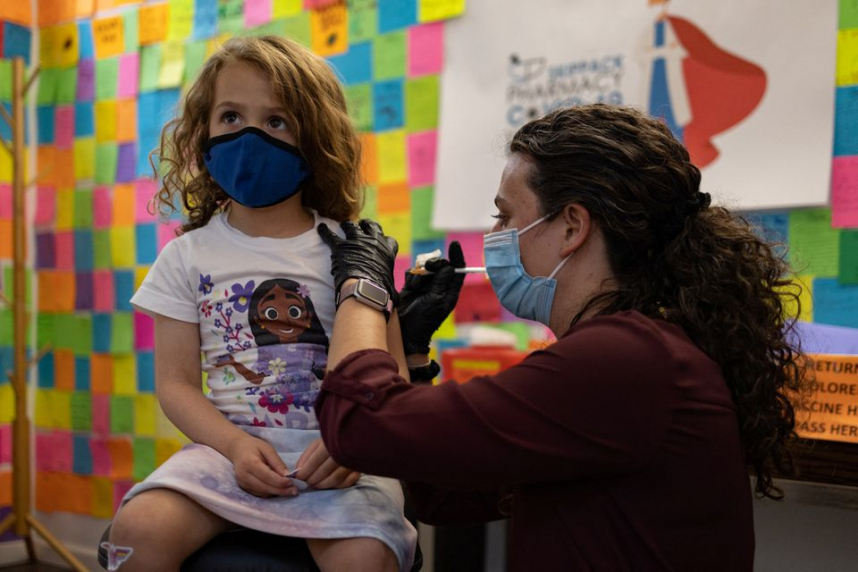
The United States has begun rolling out COVID-19 vaccines for children as young as six months after receiving the go-ahead from the Food and Drug Administration and the Centers for Disease Control and Prevention.
Interesting details about the two messenger RNA (mRNA) vaccines from Moderna and Pfizer /BioNTech for young children
HOW MANY DOSES ARE NEEDED?
Moderna's vaccine is a two-dose regimen in children aged 6 months to 6 years old. The 25-microgram doses are given 28 days apart. Adults received 100 micrograms per shot for their first two doses.
The Pfizer/BioNTech vaccine is a three-dose course for children aged 6 months to under 5 years old. The first two doses are given 21 days apart and the third is administered at least two months after the second. Each dose is 3 micrograms, below the 10 micrograms given to children aged 5 to 11, and 30 micrograms for people aged 12 and older.
Both companies had sought lower-dose versions for younger children to try to reduce side effects.
HOW EFFECTIVE ARE THE VACCINES?
Moderna's vaccine was estimated to be 50.6% effective at preventing symptomatic infections among children 6 months to under 2 years old and 36.8% effective at doing so in children ages 2 to 6 in a clinical trial of over 5,000 subjects.
It is not yet known how effective the Pfizer/BioNTech vaccine is at preventing infection in people under age 5 because of the low number of symptomatic COVID-19 cases among the children in its trial. An early analysis based on 10 symptomatic COVID-19 cases suggested a vaccine efficacy of 80.3% in this group. Once 21 children in the trial contract symptomatic COVID-19, the companies can finalize the vaccine's efficacy.
Both the company's trials showed that the vaccines generated a similar immune response to those seen in older age groups.
ARE THE VACCINES SAFE FOR CHILDREN?
Neither vaccine has raised any serious safety issues in the trials.
Heart inflammation known as myocarditis and pericarditis has been found to be a rare side effect of the vaccines in young men, but there have been few cases reported in the United States in children ages 5 to 11, and none in either of these trials for the youngest age group.
WHAT ARE THE SIDE EFFECTS?
Some children reported pain and swelling at the injection site after vaccination from both vaccines.
Pfizer's low-dose vaccine was generally better tolerated, with only slightly more participants who received the vaccine complaining of fevers, irritability, or fatigue when compared with those who received a placebo. At ages 2 to 4, 33.7% of participants who received their second dose of the vaccine reported one of these side effects, compared to 32.2% who received a placebo.
For Moderna's vaccine, 58.9% of 3 to 5-year-olds reported some type of reaction like fever, headache, or fatigue after receiving their second dose, compared with 37.2% of participants who received a placebo.
WHY VACCINATE YOUNG CHILDREN?
COVID-19 is generally milder in children than adults, but there have been more than 440 U.S. COVID deaths among those under age 5, according to FDA officials.
Data has shown that in older children and adults, vaccines protect against hospitalization and death, according to Dr. Matthew Harris, a pediatric emergency medicine physician at Northwell Health in New York.
People who had a COVID-19 infection and received a booster shot had the most protection against COVID-19, he said.